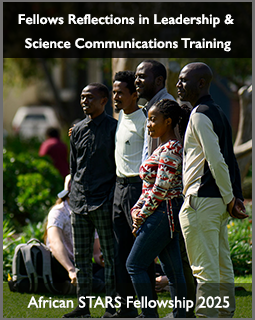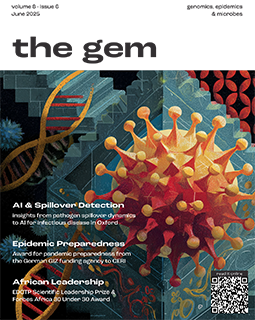SU awarded R40 million NIH grant to develop HIV-prevention strategies for rural communities
New funding has been awarded for the development of HIV-prevention strategies in rural communities of sub-Saharan Africa. The five-year, $2.2 million research grant from the US National Institutes of Health (NIH), will be used to identify vulnerable groups at high risk of contracting the virus, and design appropriate intervention strategies

Frank Tanser, Director of Population Health Innovation at Stellenbosch University’s Centre for Epidemic Response and InnovationCredit: Stefan Els
Author: Corporate Communication and Marketing / Korporatiewe Kommunikasie en Bemarking (Anel Lewis)Published: 07/03/2023
?The research, entitled 'The changing face of HIV in the era of COVID-19: Maximising HIV incidence reduction through dynamic targeting of current and future distributions of acquisition risk', will be used to inform the future implementation of HIV prevention programmes.
Led by SU, the proposed research will involve scientists from the University of KwaZulu-Natal, the Africa Health Research Institute (AHRI), the University of Lincoln, the University of Heidelberg, the University of Washington, New York University, and the University of Cincinnati.
'We are extremely excited and honoured to have been awarded this grant from the NIH. Our HIV surveillance site in rural South Africa is one of the only settings in the world where we can measure dynamic changes in the burden of new HIV infections with a high degree of accuracy,' says Tanser.
Prof Kanshu Rajaratnam, Head of the School for Data Science and Computational Thinking, adds: 'I would like to congratulate the team for securing this prestigious NIH grant. The findings of this work will be vital for designing future HIV prevention efforts and South Africa can play a leading role in showing the world how this epidemic can be driven to low levels.'
Although Tanser's recent research has shown that there has been a substantial reduction of 43% in new HIV infections in rural areas, events such as Covid-19 which disrupted HIV care could create shifts in the burden of unsuppressed viral load and new HIV infections. On the other hand, the shift to Dolutegravir-based regimens (a new antiretroviral medication to control HIV infection) in 2020 will likely further decrease rates of HIV incidence and the team expects the median age of acquisition of HIV infection will shift to increasingly older age-groups.
The HIV epidemic is rapidly changing and existing intervention strategies will therefore need to evolve to keep up with the changing dynamics of the epidemic.
'We have a fantastic team in place and I'm confident that the findings from this work will allow us to take HIV prevention strategies to the next level and ultimately to make a massive difference to local populations who are still at high risk of infection from this terrible disease,' Tanser concludes.
More about Prof Tanser
Tanser has joined the Centre for Epidemic Response and Innovation (CERI) as Director of Population Health Innovation. He was jointly appointed between the School of Data Science and Computational Thinking and the Faculty of Medicine and Health Science, thereby facilitating inter- and trans-disciplinary research.
He holds master's degrees from Imperial College London and Rhodes University and a doctorate from the University of KwaZulu-Natal. He is a senior faculty member of the AHRI and holds honorary professorships at University College London, Monash University Malaysia and the University of KwaZulu-Natal. He currently serves on the board of The Lancet HIV and has been a member of key national and international committees, including the International Scientific and Technical Advisory Committee to the Director of UNAIDS.
He is the founding director of the Lincoln International Institute for Rural Health and also a founding member of the Africa Centre for Population Health (now Africa Health Research Institute), based in KwaZulu-Natal. He was responsible for building Africa's first comprehensive population-based geographical information system at the Centre.
In 2017 he was honoured by the Medical Research Council with a gold medal for scientific achievement in recognition of the excellence of his research, and in 2019 The Royal Geographical Society awarded Tanser the Back Award for 'conducting applied research that has made an outstanding contribution to the development of national or international public policy'.
Tanser has published over 250 papers in high-ranking international journals and his research has been cited over 34 000 times.
Read more about Tanser's recent appointment at Stellenbosch University's (SU) Centre for Epidemic Response and Innovation (CERI).
?Photo: Stefan Els
?Photo: Stefan Els
News date: 2023-03-08
Links:
https://www.sun.ac.za/english/Lists/news/DispForm.aspx?ID=9773










